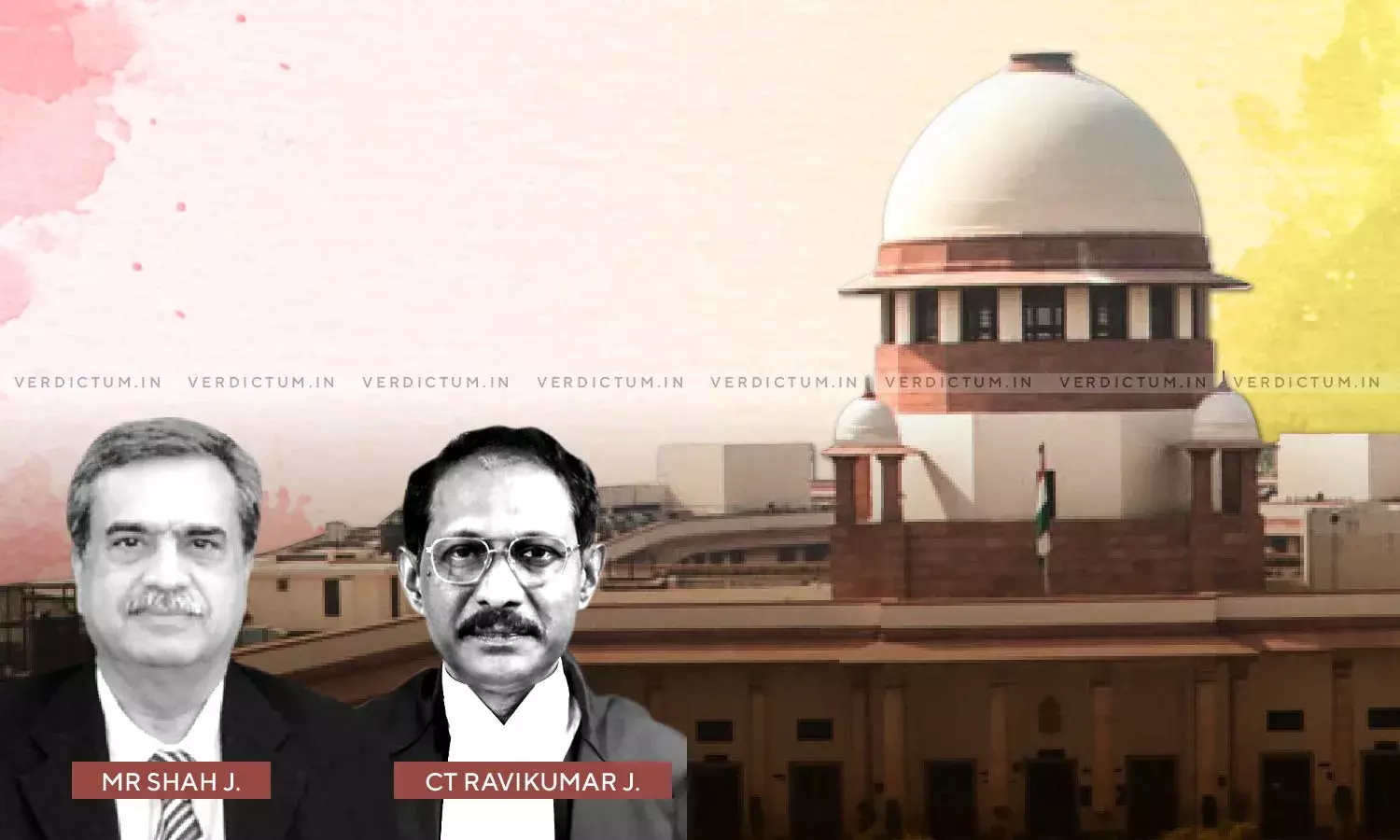Principle Of Sentencing Recognises Corrective Measures But There Are Occasions When Deterrence Is Imperative Necessity: SC

The Supreme Court in a rash and negligent driving case has held that the principle of sentencing recognizes the corrective measures but there are occasions when deterrence is an imperative necessity depending upon the facts of the case. The Court reiterated that the principle of just punishment is the bedrock of sentencing in respect of a criminal offence.
The two-Judge Bench of Justice M.R. Shah and Justice C.T. Ravikumar observed, “With rapidly increasing motorisation, India is facing an increasing burden of road traffic injuries and fatalities. The financial loss, emotional and social trauma caused to a family on losing a bread winner, or any other member of the family, or incapacitation of the victim cannot be quantified. As observed and held, the principle of proportionality between the crime and punishment has to be borne in mind. As observed that the principle of just punishment is the bedrock of sentencing in respect of a criminal offence. … It is further observed that the principle of sentencing recognises the corrective measures but there are occasions when the deterrence is an imperative necessity depending upon the facts of the case.”
The Bench said that Sections 279 and 304A of the IPC can be invoked only if the act of the accused is negligent and rash.
Advocate Kanika Ahuja appeared for the State/appellant while Advocate Aftab Ali Khan appeared for the accused/respondent.
Facts -
The respondent was driving a Scorpio Car rashly and negligently, due to which one person died while overtaking the ambulance from the left side. Because of the rash and negligent driving on the part of the respondent, two persons sitting in the ambulance also suffered injuries, and due to the collision, the ambulance turned turtle, which showed the way the accused was driving the Scorpio at high speed.
The Punjab and Haryana High Court though upheld the conviction of the respondent for the offence under Section 304A of the Indian Penal Code, it reduced the sentence from two years to eight months, subject to a prior deposit of Rs. 25,000/- towards compensation to be paid to family/legal heir of the deceased. The State being aggrieved and dissatisfied with the judgment of the High Court, preferred an appeal before the Apex Court.
The Supreme Court after hearing the contentions of both parties noted, “The High Court has not at all considered the fact that the IPC is punitive and deterrent in nature. The principal aim and object are to punish offenders for offences committed under IPC. Sections 279 and 304A can be invoked only if act of the accused is negligent and rash. As observed by this Court in the case of State of Himachal Pradesh Vs. Ramchandra Rabidas (2019) 10 SCC 75, this Court time and again emphasised on the need to strictly punish offenders responsible for causing motor vehicle accidents.”
The Court asserted that the judgment passed by the High Court interfering with the sentence imposed by the Trial Court confirmed by the First Appellate Court by showing undue sympathy to the accused is unsustainable and the same deserves to be quashed and set aside.
“Now the accused be taken into custody to undergo the remaining sentence. The accused is granted four weeks’ time to surrender”, directed the Court.
Accordingly, the Court allowed the appeal, set aside the impugned judgment of the High Court, and restored the sentence imposed by the Trial Court.
Cause Title- State of Punjab v. Dil Bahadur


